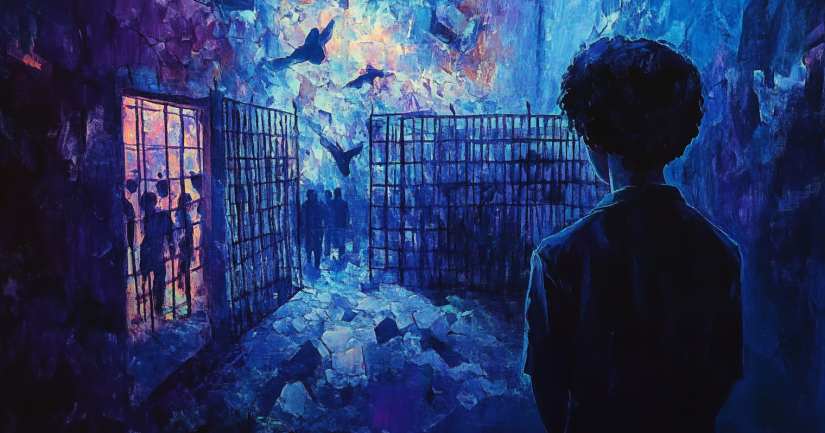
Reflect on the climactic end of Wiesel’s journey in Night Chapter 9 Quiz, where hope flickers amidst despair. This chapter serves as a powerful conclusion to Wiesel’s gripping narrative. It captures the raw emotions and profound reflections of a survivor. You will explore the depths of despair and the flicker of hope that weaves through Wiesel’s words. Each question will guide you through the intricate tapestry of his experiences.
As you progress, you will uncover themes of resilience, identity, and the human spirit’s endurance. The chapter’s vivid imagery and poignant moments will challenge your understanding and provoke deep thought. You will reflect on the transformative impact of tragedy and survival. Through this quiz, gain insights into how Wiesel’s journey shapes his outlook on life and humanity.
The nightmare is over, but its impact lasts forever. Want to revisit the beginning? Start again with Night Chapter 1 Quiz. If you need to recall the final suffering, check out Night Chapter 8 Quiz. And when you’re ready to prove your expertise, take on Night Full Book Quiz!
Engage actively with the text. Your comprehension will deepen as you answer each question. Prepare to be moved, to ponder, and to learn. This quiz is not just an assessment; it is an invitation to delve into the heart of Wiesel’s unforgettable tale. Night by Elie Wiesel Quizzes: Examine the powerful themes of survival and loss …
What Happened – Night Chapter 9
In Chapter 9 of Night, the story continues after the liberation of Buchenwald concentration camp. Elie Wiesel, the narrator, is in the camp when the American army arrives. The prisoners are freed. Elie is very weak and sick. He spends several days in the hospital. During this time, he looks at himself in a mirror for the first time in many months. He is shocked by his appearance. Elie sees a corpse-like figure staring back at him. This is a significant moment for Elie. The chapter ends with this haunting image.
Night Chapter 9 – Quotes
- “I’m free at last…” – Eliezer, ‘Reflecting on his liberation from the concentration camp, symbolizing both relief and emptiness.’
“From the depths of the mirror, a corpse was contemplating me.” – Eliezer, ‘Describing his own reflection after liberation, highlighting the profound impact of his experiences.’
“No prayers were said over his tomb.” – Eliezer, ‘Reflecting on the death of his father, underscoring the dehumanization and loss of faith.’
“After my father’s death, nothing could touch me any more.” – Eliezer, ‘Expressing his emotional numbness and detachment following the ultimate loss.’
“Our first act as free men was to throw ourselves onto the provisions.” – Eliezer, ‘Illustrating the immediate, desperate need for survival despite newfound freedom.’
“We were only men.” – Eliezer, ‘Acknowledging their reduced humanity after enduring the horrors of the Holocaust.’
Night Chapter 9 – FAQ
Chapter 9 concludes Elie Wiesel’s memoir with his liberation from Buchenwald, highlighting the aftermath of his experiences and their deep impact on his identity and faith. It marks the end of his physical ordeal and the start of his emotional and spiritual journey towards healing.
Survival in Chapter 9 is shown as more than just a physical triumph; it’s an emotional burden. Wiesel illustrates the emptiness and disorientation after liberation, focusing on the struggle to find purpose and humanity again. Survival involves not only enduring physically but also reclaiming one’s identity and beliefs.
Chapter 9 conveys a mix of relief, numbness, and confusion. Liberation brings freedom, yet it is overshadowed by haunting memories of suffering and loss. The chapter captures the paradox of liberation—joy mingled with sorrow and uncertainty about the future.
Liberation is portrayed as a moment of hope and a challenging transition. Wiesel describes disbelief and gradual acceptance of freedom. Liberation isn’t an immediate return to normalcy; it starts a painful recovery journey, confronting psychological scars from past experiences.
Reflection is key in Chapter 9, as Wiesel ponders the Holocaust’s impact on his life and beliefs. Through introspection, he examines his transformation and loss of innocence. This reflective tone encourages readers to consider the broader implications of the Holocaust and the enduring quest for meaning after such trauma.
